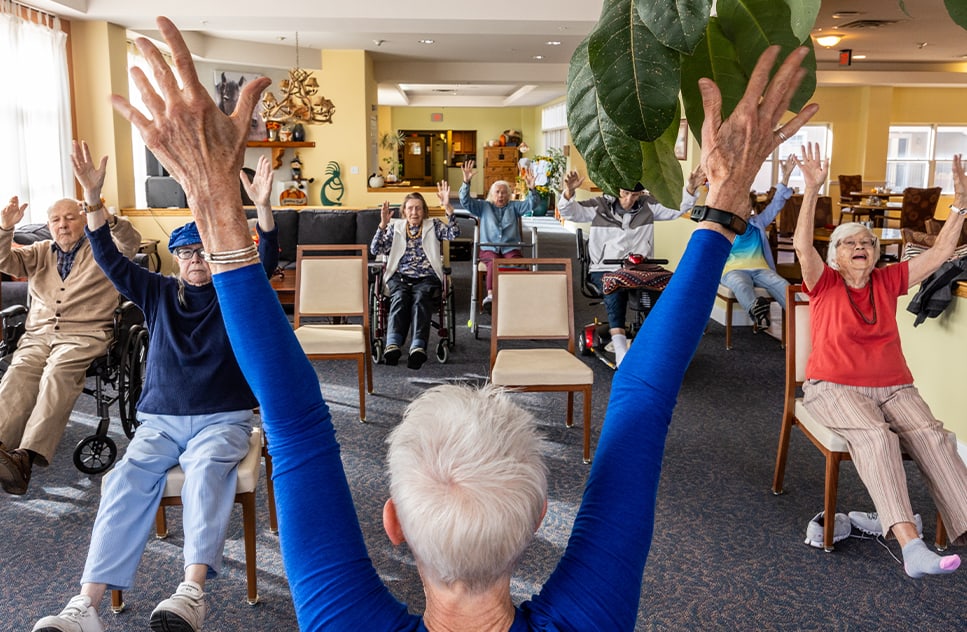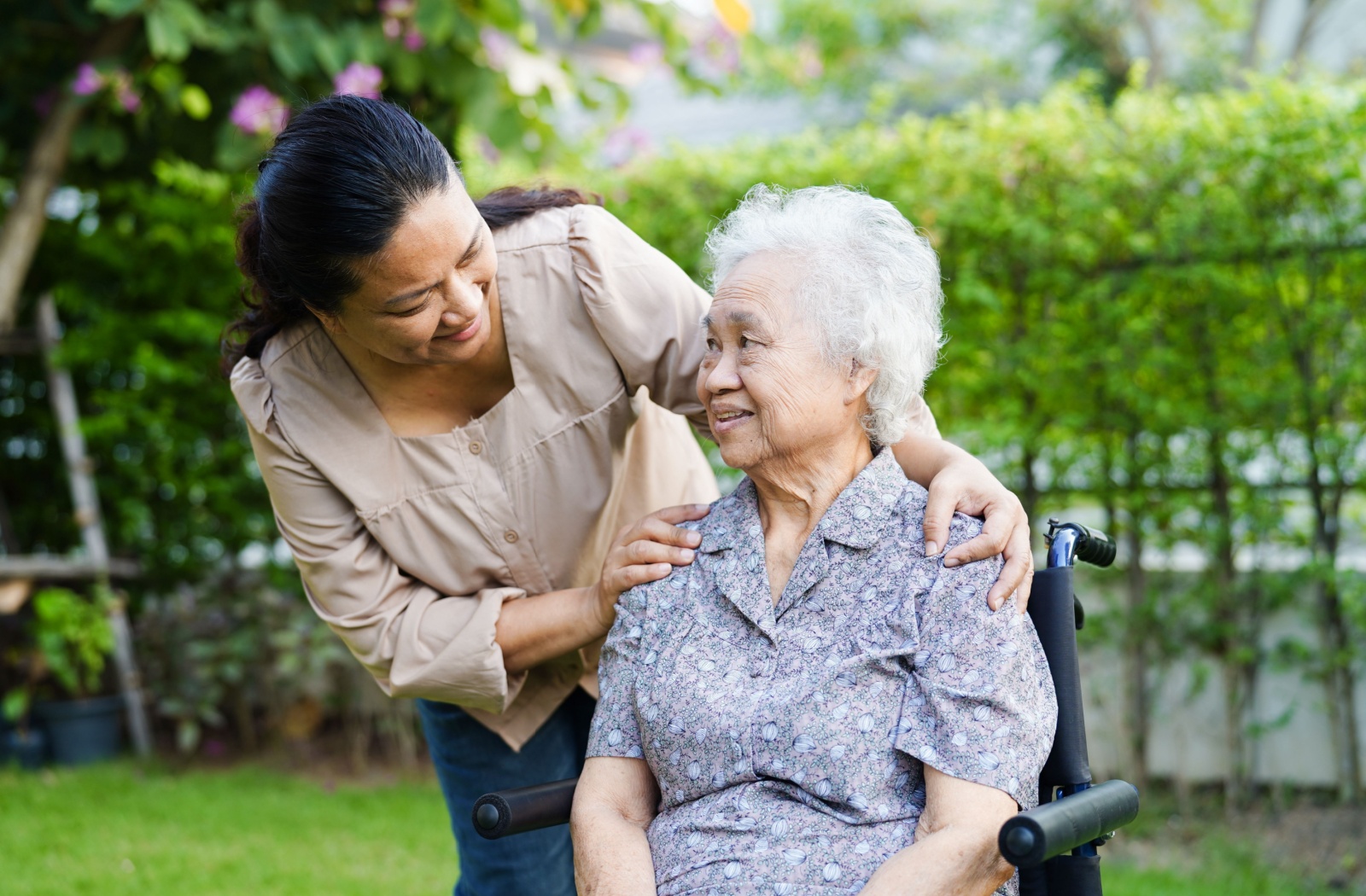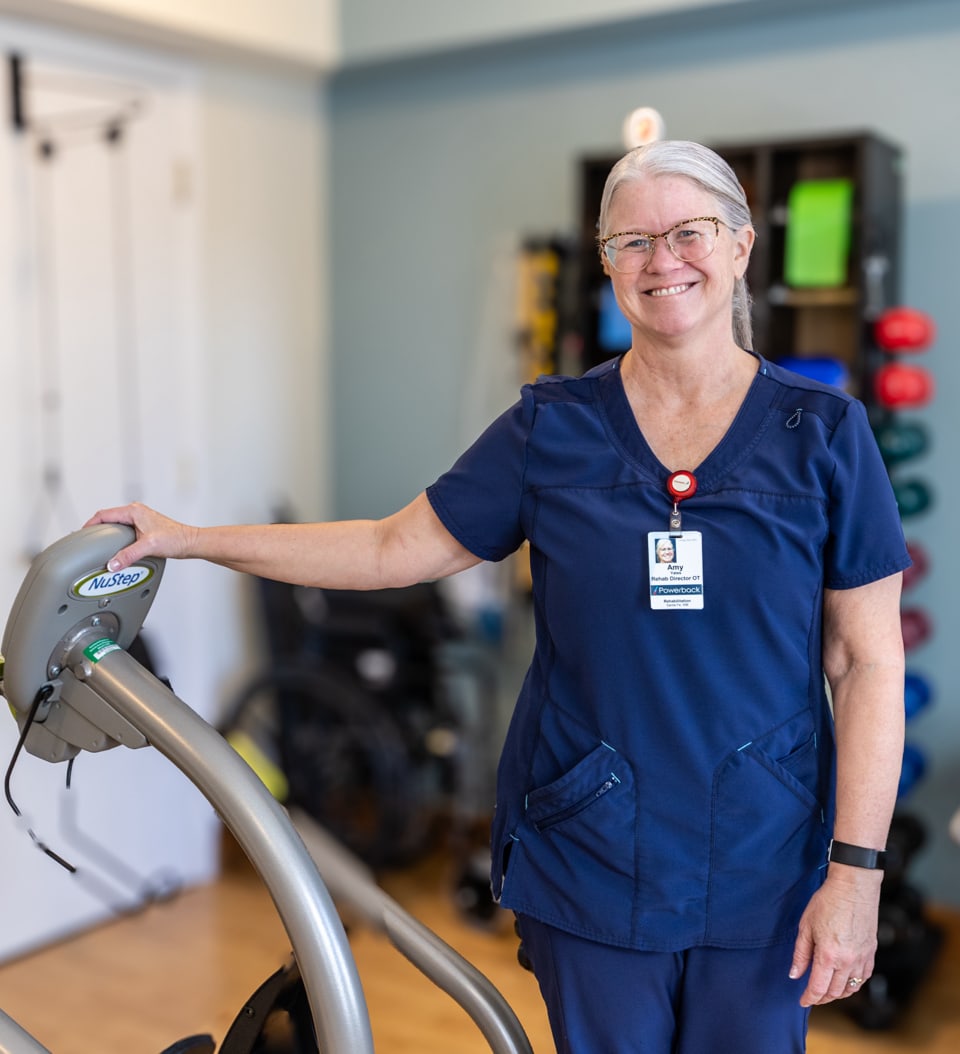Providing care for a loved one can be a rewarding experience, but it can also be exhausting. Caregiving may allow loved ones to spend more time aging in their own home before transitioning to assisted living options. However, the responsibilities caregivers take on are large and can cause burnout.
Caring for someone else while your needs aren’t being met can seem impossible. Burnout can prevent caregivers from offering the same compassionate and comprehensive support they once gave to their loved ones or themselves. One way to help avoid burnout as a caregiver is to prioritize your mental health.
To prioritize your mental health as a caregiver, we recommend:
- Practicing self-care
- Finding a community
- Taking breaks
- Setting realistic expectations
- Finding professional help
What Is Caregiver Burnout?
Caregiver burnout is a condition that affects many unpaid caregivers. It refers to a state of mental, physical, and emotional exhaustion that can make daily functioning seem difficult.
Some symptoms of caregiver burnout could include:
- Feeling anxious, hopeless, or depressed.
- Sleeping poorly and feeling tired constantly.
- Isolating yourself from friends and family.
- Neglecting your personal needs.
- Difficulty concentrating.
- Getting sick more often than normal.
- Changes in appetite or weight.
- Increased irritability.
If you think you may have caregiver burnout, it is important to make a plan to rest and address your own needs. Speaking to a doctor and/or mental health professional can also be an important step in alleviating the stresses associated with caregiver burnout.
How to Practice Self-care
You have to take care of yourself before caring for anyone else. Prioritizing self-care can help you avoid burnout as a caregiver. Self-care may look different for everyone, but there are some self-care activities that you can do to start.
1. Physical Activity
Engaging in regular physical exercise can help reduce burnout. Being consistently active is a great way to improve your physical and mental health and can allow you to carve out some much-needed me-time. Exercise doesn’t have to be a big commitment—you can see health benefits from simply taking a 30-minute walk daily.
2. Maintain Healthy Lifestyle Habits
If you don’t have enough time in the day to get everything done, it can be easy to neglect your eating and sleeping habits. Having a healthy diet and getting enough sleep can help reduce burnout. By taking the extra time to prioritize your sleep and diet, you can help avoid burnout while caregiving.
3. Practice Mindfulness
Mindfulness is an awareness of your internal thoughts, feelings, and external environment. You can practice mindfulness by taking a few minutes daily to meditate and being present in the moment.
While it can sometimes feel pointless to take a few minutes every day to meditate, meditation can help reduce anxiety and depression when done consistently.
How to Find a Community

Having social and emotional support can be crucial to avoid caregiver burnout. Studies have shown that those with social support during stressful times are significantly less likely to experience burnout than those without social support.
Community groups like churches and neighbourhoods may be able to offer you support if you need it. Sometimes, it can help to talk with others who have similar experiences to you. You can find caregiver support groups online and in your community that allow caregivers to support each other. Reaching out to family and friends can also be a benefit.
How to Take Breaks
Taking breaks will look different for everyone, but it is important to set aside some time for yourself every week to do an activity that you enjoy, such as reading, gardening, or solving a puzzle.
If you are feeling burned out, it may be beneficial to take more time off. Scheduling a vacation, even if it is just a weekend away, can help you feel refreshed and give your mind and body a break.
Set Realistic Expectations
You are a human, and while you want to do your best for your loved ones, it is important to know your limits. Take some time to find and set boundaries about what you can and cannot do. If you cannot keep up with the needs or expectations of the person you are providing care to, that is okay, but it may be time to consider other care options.
How to Find Professional Help
Burnout can feel impossible to overcome. If you’re struggling with your mental health then don’t be afraid to ask for help. By reaching out to a therapist, counsellor, or community leader, you can find hope and guidance in an emotionally taxing time.
Professional help can also come from exploring assisted living or memory care programs to help offset your loved ones’ care. There are professional care programs that can meet your loved one’s needs while letting you catch your breath. Assisted living programs, memory care programs, and skilled nursing services are all designed to offer special care for your loved one and give you a much-needed break.
Exploring New Options with Kingston HealthCare
Caring for someone you love can feel like you’re doing it alone. But you don’t have to. Choosing a care facility doesn’t mean you’re not doing a good job—you’re taking care of yourself and your loved one in the best way you can. By considering professional care options, you can give your loved one comprehensive and compassionate care while caring for yourself.
At Kingston HealthCare, we want you to know that you’re not alone in your caregiving journey. It’s okay to ask for help! Our community provides services to support you and your loved one through this transition. To learn more about our services and programs and to find out if they could be right for you and your loved one, contact us today.






